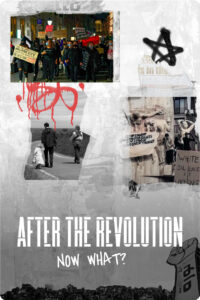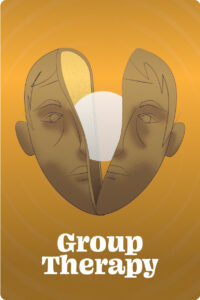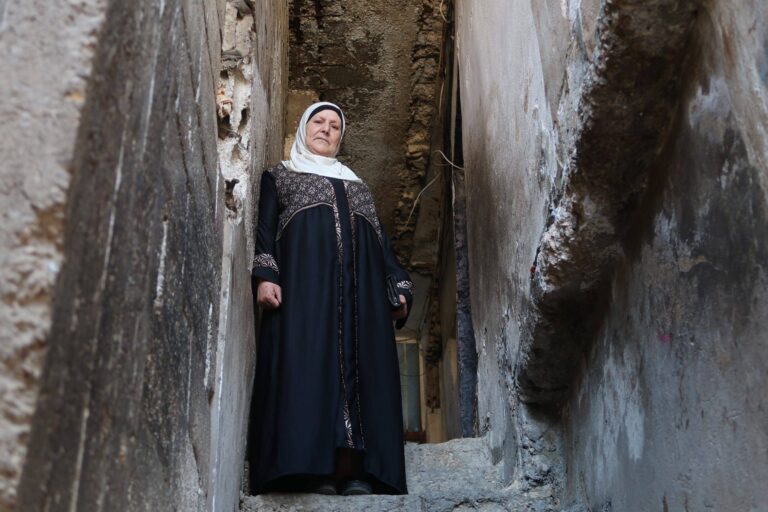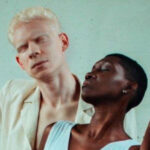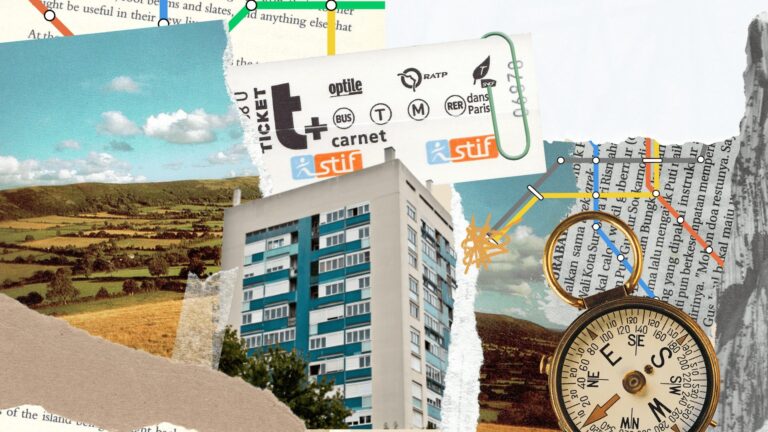It’s a small, laminated card. The photo on the left. No glasses, no smiling. Right at the top, the words “République Française” stand out and signal their affiliation. While some can no longer remember how they acquired their first French identity card, others have spent years running after the ticket that, without a doubt, will change a huge part of their lives.
In 2019, 49,671 people became French by naturalization. In 2020, it was 41,927. This is one of the ways to obtain citizenship, as opposed to the processes of nationality by declaration, in the case of marrying a French citizen for example, and nationality by advance declaration, which is applicable for minors over the age of 16.
One would immediately presume that an added citizenship and a brand-new passport are, if not pleasant, then certainly positive occasions. In the background, a clash of identities unfolds: a psychological battle to love, to live in, and to appreciate a dual culture – of which naturalisation is only one step.
This process, a long time in the making, also shrouds different realities. The people who took refuge in France, or those who left with no ticket or visa, nothing except hope; the violence of each of their paths cannot be compared to the road, painful and chaotic though it may be, of those exiled to French territory, who arrived in a kind of administrative stability. Our focus will be their accounts of building their identities.
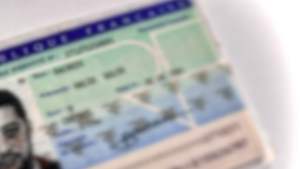

In the background, a clash of identities unfolds: a psychological battle to love, to live in, and to appreciate a dual culture – of which naturalisation is only one step
A hostile welcome
Experts, most often psychologists or psychiatrists, categorize the behaviour of those in exile to better understand their disorders or their thought processes. Assimilation, integration, rejection, marginalization… Child psychiatrist at the AP-HP (Assistance Publique – Hôpitaux de Paris) Sevan Minassian does not agree with putting them into boxes. “The behaviour of these people in migration situations cannot be interpreted alone, as though isolated from everything else. It is the reflection and the consequence of what the outside promises them or forces them to endure.”
A 10-year-old Lotfi enters the office of a dermatologist in Algeria, where he is diagnosed with psoriasis. The doctor, attempting to understand the root cause, questions the child: “Maybe you are troubled, do you think a lot?” “Yes,” he shoots back, “I want to live in France.” From Argentina, Victoria, like Lotfi, dreamed of France, “the only place in the world for careers in culture. The country of Simone de Beauvoir, of legal abortion.”
Upon their arrival, both of them had to adjust their preconceived notions of France to the reality playing out before their eyes. This disappointment is just one of many shocks that fuel the difficulty of living harmoniously in the new land: the language barrier, qualifications not being recognized, an undervalued culture of origin, etc. In short, for a state that demands of its new arrivals that they melt into French society, or, to use the official expression, “assimilate”, France is not very welcoming.
Kenza, who was raised in a francophone environment in Morocco, with a perfect mastery of the French language, thought she was all set when she arrived in France at 18 years old. But people were quick to tell her (and repeatedly remind her) that this was not the case. “They say that you have an accent, you get corrected about this cultural baggage that is supposed to be the same, but it isn’t, really. Other francophone countries have made up new words, for example.” Although this young woman rejects this “rigid vision of French culture,” she admits she was hung up on it for a while “you tell yourself that it’s their language, and so they know best, but it’s not true, we are just as legitimate as them.”
In and of itself, the application process for naturalization is a difficult step. It is a necessity for many people to begin living with peace of mind. When all you have is a visa, which needs to be renewed, “you’re on an ejection seat. You never know for sure if you can continue living here,” says Lotfi. Victoria is even more direct: “I needed it to live. For someone who doesn’t have a European passport, life is difficult. You’re doubly foreign when you aren’t a part of the European Community, you’re a second-class citizen, and it prevents you from living.”
It is a necessity for many people to begin living with peace of mindlité
Among the members of this micro-community for French naturalization, mutual assistance proves effective. On the cover of the dedicated Facebook group are displayed the red, white and blue, and on the page, you lose count of the words ‘proud’ and ‘happy’. It is easy to understand the relief of those who complete their “REX” (feedback and experience report), once their names have appeared in the Official Journal; it is a long and difficult road, strewn with pitfalls. On top of the mountains of paperwork and other files to request, send, and transmit, you also need to complete an interview. The questions deal with the individual’s story, but also the history of France, its geography and political system, etc.
Mara is one of the group’s moderators. She was 18 years old when she arrived in France to study, and after having lived here for 23 years, she finally became French in 2019. “It is really a powerful moment when you read the REX. You have to be a stranger somewhere to understand how powerful it really is. If you’ve never left a place for good, you couldn’t understand. It is not easy to leave your country. People don’t realize how difficult it is. Even for me, I was in an easy situation, and it was still very difficult. Deciding to stay is the sign of having character and courage, not of someone who is looking to take advantage.”
Unique stories
Because to get somewhere, you must first leave. “All migration is a loss, a leaving-behind of some things that are a part of you,” explains the child psychiatrist. However, he is of the opinion that in this grief also lies the possibility of building yourself, through the binding of yourself “to other places, other possibilities, and other parts of your identity. If not for the initial loss, we wouldn’t look to adhere to something new.” The psychologist Judith Stern ties this loss to the notion of nostalgia. This migration-linked sentiment is “vital for the construction of a dual identity” for her as well.
After this array of exterior obstacles, once the ticket is acquired, do we have a better, calmer life? “Subjectively, becoming French can be reassuring in terms of stability. You are no longer in suspense. But it begs the question: beyond this piece of paper, what do you do with what you were? The tension between ourselves and others has become instead a tension between us and ourselves,” replies Sevan Minassian. Once again, everything depends on the individual’s story, and the history between the country of origin and France. For Gaia Barbieri, a Doctor of Psychology and a clinical psychologist, coming from a country that was once a French colony undoubtedly has an impact, “it can create a very intense mental conflict.” According to the latest data from Eurostat, accounting for every procedure, of the French citizenships attributed, 14% were Morroccan, 13.5% were Algerian, and 6% were Tunisian.
Today, even after having been a resident for 15 years, Kenza has a hard time saying she’s French. “I was always under the impression that it was like proposing at the last minute to someone who doesn’t want to be engaged to you,” she says ironically. At 30 years old, she wanted to throw a party on the occasion of her new nationality, to “celebrate the milestone”, but her ambivalent feelings led her in a quirky direction. So, her party is decked with red, white, and blue, striped shirts, and other stereotypes.
The human spirit is very inventive when it needs to adapt. People manage to blend cultural universes and to build bridges
Ingrid Plivard – Doctor of Social Psychology and author of Intercultural Psychology
Lotfi, however, seems to be more at ease, and describes a kind of restored logic. “Before, there was a dissonance between belonging to a place, working there, contributing to society, but not being able to say it, really.” He does not hesitate before saying his nationality, except abroad, since “some countries have an ethnic conception of what it means to be French.” One thing, however, bothers him, “something that has shaped my life here. I need to be the perfect North African. I can’t allow myself to have poor behaviour, the slightest incivility, which would contribute to racism.” Having come into the punishing racism of France, he carries the pressure of having perfect behaviour on his shoulders.
Sometimes, it is an external event that jostles views from their foundations. “I really felt what it meant to be French, and not just Parisian on the day of the 2015 terrorist attacks,” says Mara, and while completing the process of naturalization, she finally “realized” that she was “kind of French”. Despite the difficulties, she seems to take well to dual culture. Is it because she herself is a product of it? Her clear voice betrays an American accent that wouldn’t lead you to uncovering an even more distant origin, but her father, a Serbian national, became an American citizen after living there for 25 years. She remembers the joy and the celebration.
Help us tell the world to you !
Frictions is launching its club : by supporting Frictions, you’ll be supporting a community of authors and journalists who tell the world through intimate stories!

Victoria’s relationship with France is much more tumultuous. She admits that she has yet to completely reach a form of stability and speaks of a “bittersweet victory.” And yet, as she lists the things she loves about France with feeling, you can detect a kind of love, even a passion for this place: “open mindedness, social sciences, the culture, the food, and the social welfare system.” Perhaps it is also because of Victoria’s unique story of a trans-generational link. She, who plans to donate the documents of her jewish grandparents to the Shoah Museum, feels like “a European jew returning to Europe.” She says that she was able to “become fully jewish” here.
Finally, the Doctor of Social Psychology and author of Intercultural Psychology, Ingrid Plivard, describes this quest for stability as a dynamic process that goes through different phases and that takes time. “The human spirit is very inventive when it needs to adapt. People manage to blend cultural universes and to build bridges.” Whatever their stories may be, all these accounts, read or collected, display a deep bond to France and to public life, and most notably the citizen’s eagerness to participate in the upcoming elections, which are dreaded by the majority. This, too, is what it means to be newly French, living with the fear that it may not be forever.

